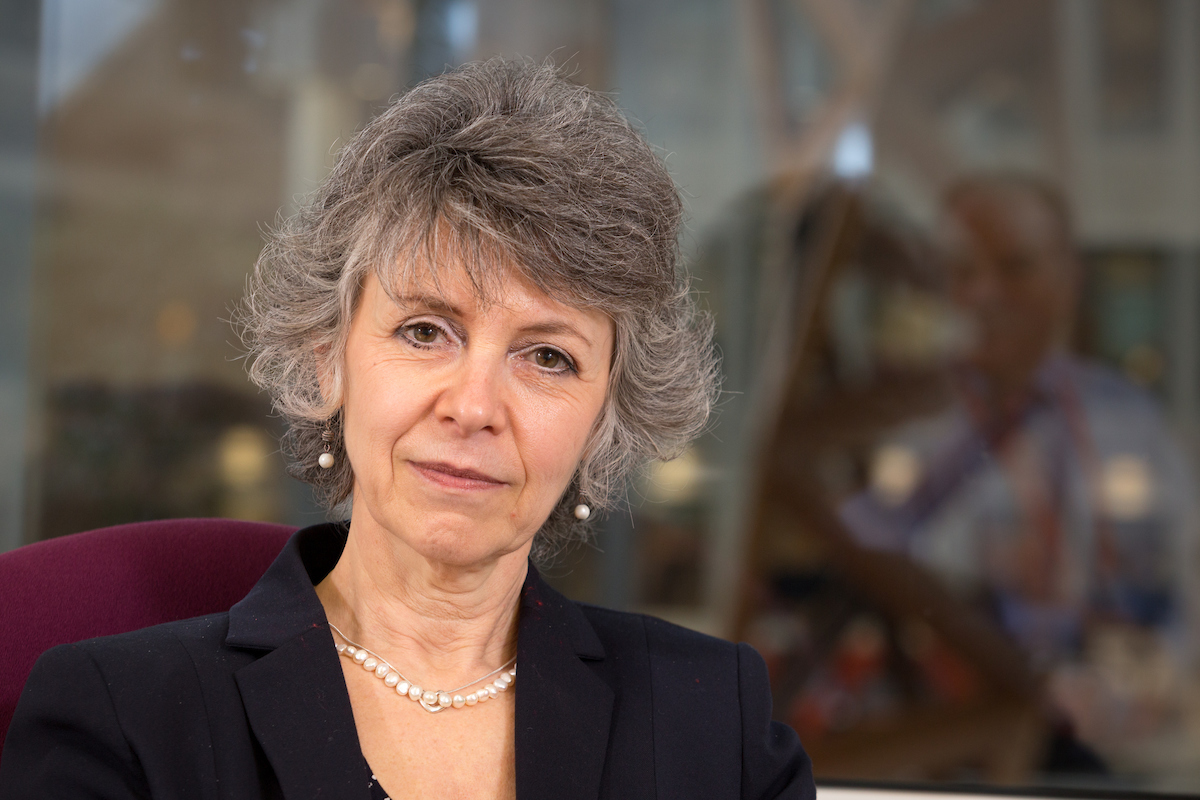Alumna: Alexandra Marks
Alexandra studied Jurisprudence at Brasenose College, graduating in 1980. Alexandra chaired an Oxford Women in Law panel discussion and sits on the Advisory Board for OWL.
Alexandra studied Jurisprudence at Brasenose College, graduating in 1980. After completing her Law Society exams, she trained at Rowe & Maw (now Mayer Brown), and then moved to Linklaters where she became a partner in 1990.
She stepped down from as an equity partner at Linklaters after 13 years, but remains associated with the firm. She has since built a portfolio of public, judicial and third sector roles. She now sits as a Deputy High Court Judge, Recorder and First Tier Tribunal Judge. After finishing terms as a Commissioner at the Judicial Appointments Commission and then the Criminal Cases Review Commission, she was recently appointed Statutory Reviewer of Access and Participation Plans for the Office for Students. She was also recently appointed Chair of CEDR (the Centre for Effective Dispute Resolution).
What aspects of your law degree have proved to be the most useful in your career so far?
Studying jurisprudence had the most profound effect on me: although I had been studying law for two years by then, I had not previously considered why we have law and why people take notice of it. Learning about jurisprudence for the first time, I began to understand how other legal subjects fitted together.
Unfortunately, my interest in jurisprudence was not reflected in the mark for my Final exam (despite all the efforts of my tutor, Hugh Collins, now Vinerian Professor of English Law – sorry, Hugh!)
What did you enjoy most when studying Law at Oxford?
I loved reading cases because the stories behind them were so human, and fascinating. Every law student knows about the snail in the ginger beer bottle (Donoghue v Stevenson [1932] UKHL 100) which laid the foundation of the modern law of negligence. Other cases were equally memorable if less well known, such as R v Collins 1973 QB 100 about a 19-year-old man convicted of burglary with intent to commit rape. The Court of Appeal described the facts "as being so improbable as…verging at times on farce". The case even has its own Wikipedia page! https://en.wikipedia.org/wiki/R_v_Collins An additional frisson for BNC students was that our tutor for Criminal Law was called Collins (see above!)
What advice would you give to someone who is thinking of studying Law at Oxford?
Just do it! Law is a wonderfully broad and relevant subject to a whole range of modern issues, not just from a legal perspective but social, political and philosophical too.
Who was the biggest influence on you when you studied here?
I have already mentioned Hugh Collins but my other two BNC tutors, John Davies and Peter Birks, were massively influential too. John gave the most famously entertaining as well as instructive revision lectures whilst Peter was a fearsomely demanding and committed tutor.
I owe them all a huge debt.
What’s your specialism? And, would you recommend that as a specialism to current Law undergraduates?
Much to my surprise – as I never really got on with Land Law nor “Conveyancing” as it was then called at Law School – in practice I specialised in Real Estate. I’m only half-kidding when I say that the part I enjoyed most was colouring plans. Of course, colour printers have made that task extinct!
I really enjoyed the intellectual challenge of making big transactions, often of great importance to clients, happen quickly, smoothly and cost-effectively. I highly recommend it.
What has been the biggest challenge in your career to date?
Undoubtedly my biggest challenge was making the transition from my day job as a commercial solicitor to sitting as a judge in the Crown Court. The unfamiliar environment, lingo and awesome responsibility were almost overwhelming. Now several years later, I still find it stretching - and rewarding for that reason.
This year, we continue to celebrate 100 years of women in law, what issues still need to be addressed?
This is an enormous topic! Quite apart from the gender pay gap and, just as unwelcome, sexual harassment in the workplace, there are still too few women in senior positions as solicitors, barristers and judges (and academics too!)
My own view is that we need to reconsider job design – and genuinely embrace a culture of flexible working. For instance, whilst I was a Judicial Appointments Commissioner, I often asked why more judicial posts aren’t part-time. If people can sit 3-6 weeks a year as fee-paid judges, why can’t they - as a matter of course - sit 3-6 months a year as part-time salaried ones?The business of judging must be one of the most project-based jobs there is. If you turn up with your brains, books or laptop, once you’ve finished hearing the case, there’s no reason why you couldn’t take a break before the next one.
Lots of people I know - not just women or those with caring responsibilities - simply don’t want to work 42-48 weeks a year till they’re 70. Working half that amount, in sensible chunks, would attract a very different kind of candidate for many roles.
Why did you become involved in the Oxford Women in Law (OWL) network?
I enjoy networking, and meeting those with similar – or different ! – backgrounds and experiences. I’m also very happy to help and support others – especially as I have been lucky enough to have worked in a wide range of public, judicial and voluntary roles so can give people ideas if they’re looking to develop their careers in a similar way.
I was privileged to chair a panel at one of OWL’s recent events about women judges: Philippa Whipple, Mary Stacey and Usha Karu each gave inspiring accounts of their roles as High Court Judge, and Circuit Judges. I hope many Oxford Women lawyers will follow their example.

